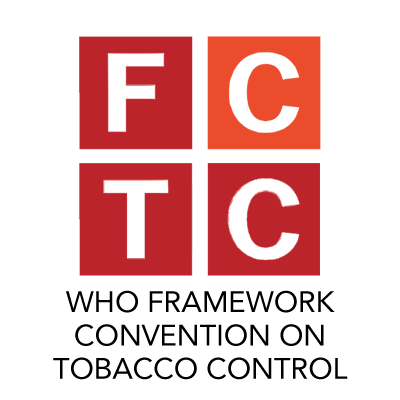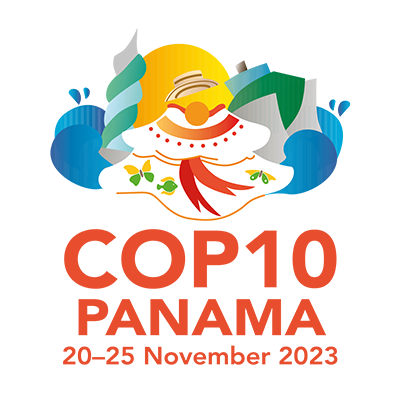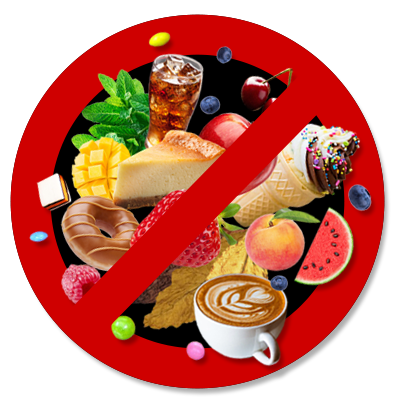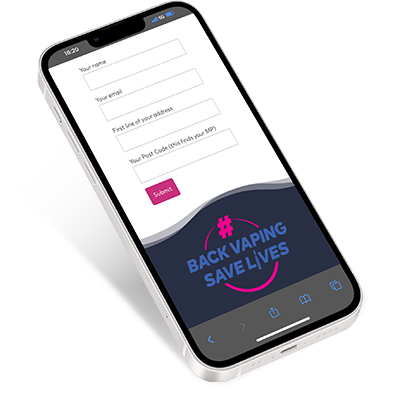
Don't Let The WHO Destroy Vaping – Sign The Petition!
ONE of the great things about Vape Club is the choice it offers customers. Want a myriad of flavours? No problem. Open systems and nicotine salts? You’re covered.
Its success is because of the consistency in the variety and quality of the merchandise it sells. In this case, regulated products that offer multiple ways to stop smoking cigarettes, the biggest cause of preventable deaths in the history of the human race.
Yet come November, this sensible model of offering choice to the vaping consumer will come under fire from the World Health Organisation, when it holds its Collection of Parties (COP10) in a closely guarded convention centre in Panama.

Part of the Framework Convention on Tobacco Control (FCTC), the event in Central America is where WHO will advise its 194 member states – including the UK - on how to rid the world of tobacco.
While it cannot make laws, agreements are made at the meeting which then are required to be implemented by countries signatories to the convention such as the UK. The UK has a history of signing up to and adopting such policies, as it did with tobacco advertising.
The COP10 agenda, which underlines WHO’s increasingly aggressive position on vaping, is supported by documents compiled to affirm the organisation’s position after previous COPs.



In them, we see volley after volley of disingenuous claims against a practice and product proven to save lives, and draconian measures designed to restrict vaping on a global scale.
Here are some examples:
A Ban On All Vape Flavours

WHO has made clear it sees all flavours in electronic nicotine delivery systems (ENDS) as a threat to children and states: “Parties that have not banned the importation, sale and distribution of ENDS and ENNDS may consider “banning or restricting the use of flavours that appeal to minors.”
And later: A full ban on all flavours in all nicotine and tobacco products would appear to be a strong approach to curbing young people’s use of tobacco products.”
Worth noting, is WHO admits how appealing flavours are to smokers considering making the switch to vapes when it concedes: “Among adults, e-cigarette flavours increase product appeal and are a primary reason for using the product”.
Whilst I wholeheartedly agree children should not vape, I also agree they should not drink alcohol or drive cars. They don’t because the law is enforced. And so it should be with tackling illicit vape products and unscrupulous traders selling to kids. Big fines and the threat of a custodial sentence would bring this problem under control, whilst protecting the access of effective smoking cessation tools to those who need them.
Both the Medicines and Healthcare Products Regulatory Agency (MHRA) and Trading Standards can enforce regulations on vaping products and WHO member states each have an equivalent. They should be advised to properly fund these services and use them.
Taxation At The Same Rate As Cigarettes

WHO's policy advisors want to increase taxes on vapes to the same rate as cigarettes. This is entirely flawed logic and will only increase smoking and the harm caused by combustible cigarettes. Currently, large numbers of smokers are incentivised to switch to vaping because it is vastly cheaper than smoking cigarettes.
If the taxes are equalised then that incentive is entirely removed. Surely the tax on nicotine products should be in proportion to the amount of harm each product causes to the user. Instead, the WHO seems determined to tax merely on the basis of prejudice against nicotine and the people who choose to consume it.
A change to raise the taxes on vaping products could increase the cost of vaping by £2,000 a year. This is another reason I encourage readers to contact their MP via the Back Vaping Save Lives form.
A Ban On Open Systems - Refillable Vapes

Choice is a big ‘No’ for WHO, so the idea of tobacco smokers wanting to customise their vaping experience is a non-starter. Instead, they recommend all devices that are refillable or can have coils and batteries upgraded be removed from sale.
One report recommends: “Regulators should not permit ENDS in which users can control device features and liquid ingredients (i.e. open-system ENDS).”
And later: “Regulators should make sure that customizable products that can be used to deliver nicotine in products such as open-system ENDS are removed from the market; otherwise, users will add unorthodox and illicit additives to their products.”
WHO thinks these devices are open to abuse – and perhaps they are. But an individual determined to dangerously customise something to do something it is not designed to do will behave recklessly whatever restrictions are applied.
The overwhelming majority of open system users do so responsibly and are motivated by cost – as refillable devices are known to be cheaper than disposables long-term – and experience, as you can control heat and have access to a wider range of flavours and strengths.
They also reduce waste, because they are not disregarded after short-term use and incentivise smokers to switch by offering a less harmful option they can personalise. Banning them will again fuel the underground market, where unregulated, dangerous products are sold to anyone with access to an unscrupulous trader or the internet.
In addition, WHO also wants to redefine the word smoke, so that it includes vape clouds. This is not to help the smoker, in my view, but allows vapes to be classified alongside cigarettes. In doing so, they are falsely perceived to be just as dangerous as using carcinogenic, combustible tobacco.
To cap this all off, advisors want nicotine salts – used for a smoother experience – banned because they allow for faster and more efficient absorption of nicotine. WHO fears this could lead to addiction, whilst ignoring the benefits of harm reduction for vapers who are no longer inhaling toxic smoke.
What Can Vapers Do To Help?
Whatever motivates WHO – which has been criticised for close ties to China, where 1 in 3 cigarettes made, are smoked – it has clarified many times its position on vaping in the run-up to COP10.
With healthcare influence over billions of people, this organisation’s recommendations can have a global impact on health strategy and societal norms. This is important because across the globe over 1 billion people smoke, a figure which hasn’t decreased over the last few decades. Policies made at COP10 that prohibit safer nicotine products will only keep more people smoking and maintain the 7 million or so who have their lives cut short by smoking-related illnesses.
This is why I am appealing to vapers to join our campaign and make the UK’s delegation at COP10 fully aware we expect and deserve fair representation. Taking two minutes now to contact your MP via the campaign website could save you thousands of pounds each year in the future.
Panama may be typically stormy in November – fitting for the clouded judgement we can expect from WHO – but as a vaping community our choice is clear:
Be vocal in support of a life-saving tool or accept repeated attacks upon it until the option of its use is gone.
Please write to your MP to express your objections to these real threats against vaping.
You can do so on our campaign website: #BackVapingSaveLives
Contact MP
